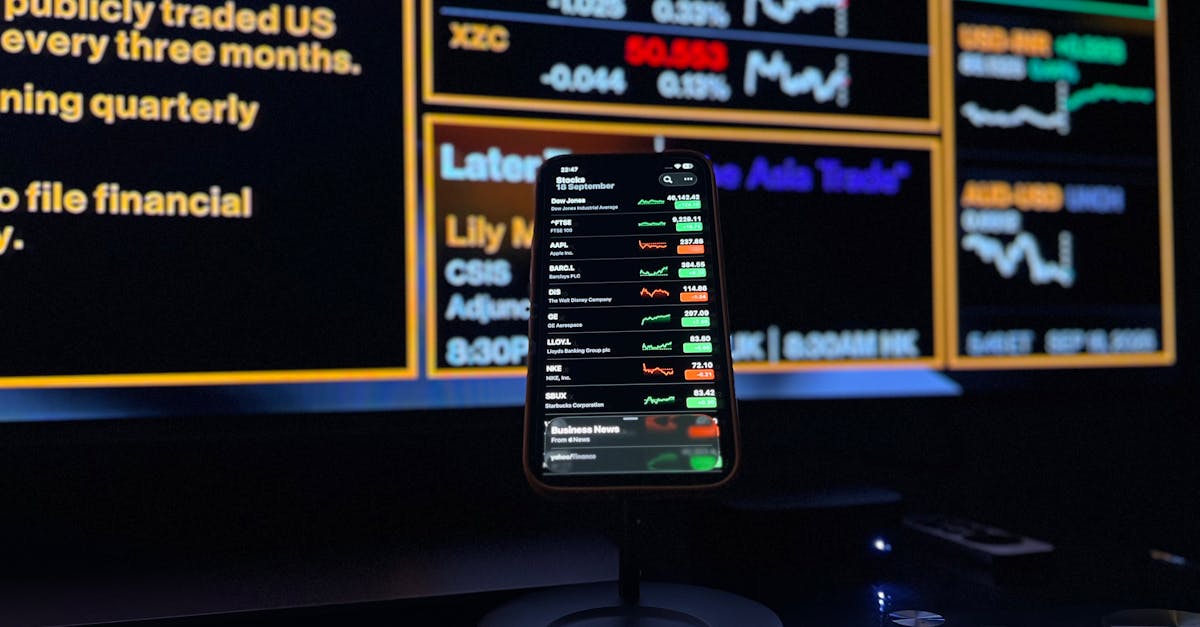The Future Of Finance
Introduction
As we navigate the evolving landscape of global finance, a new era emerges characterized by innovative fiscal trends transforming economies worldwide. Technological advancements, evolving consumer behaviors, and shifting global power dynamics are influencing how nations approach fiscal policies and personal finance. But what exactly are these fiscally futuristic trends, and how will they shape the future? From burgeoning digital currencies to the increasing importance of sustainable investing, the future of finance is both exciting and challenging. Whether you're an investor, policymaker, or curious observer, understanding these trends is crucial to navigating the financial world. Let's explore these transformative trends shaping the future of global finance.
Advertisement
Rise of Digital Currencies
Arguably one of the most talked-about fiscal trends is the rise of digital currencies like Bitcoin and Ethereum. These decentralized currencies challenge traditional banking systems by offering transactions without intermediaries, thereby reducing costs and increasing efficiency. Central banks are also exploring the possibilities, developing their Central Bank Digital Currencies (CBDCs) to complement traditional currency. This shift presents exciting opportunities for financial inclusion, providing access to financial services for millions currently excluded. However, it also raises concerns regarding security, regulation, and the potential for financial instability. As more countries and corporations adopt digital currencies, the global financial landscape is set to transform dramatically.
Advertisement
Blockchain Revolution
Beyond digital currencies, blockchain technology is revolutionizing various financial sectors. This decentralized ledger system ensures secure and transparent transactions, significantly impacting industries like banking, real estate, and supply chain management. By minimizing fraud and enhancing efficiency, blockchain is laying the groundwork for a future where transactions are rapid, verifiable, and less reliant on traditional processes. The introduction of smart contracts—self-executing contracts with contract terms directly written into code—further illustrates blockchain’s disruptive capabilities. As this technology continues to evolve, it promises to foster increased trust and privacy in financial transactions worldwide.
Advertisement
Green Finance and Sustainable Investing
With climate change being a pressing global challenge, sustainable investing is emerging as a major fiscal trend. Investors are increasingly prioritizing Environmental, Social, and Governance (ESG) factors, aligning their portfolios with ethical and sustainable projects. Green finance—investment in environmental solutions such as renewable energies and sustainable agriculture—is gaining momentum, driven by both consumer demand and regulatory pressures. This shift represents a significant opportunity for growth and innovation within financial markets, encouraging businesses to adopt eco-friendly practices. As sustainability continues to be prioritized, it is shaping financial markets, influencing fiscal policies, and challenging traditional investment models.
Advertisement
AI and Machine Learning in Finance
Artificial Intelligence (AI) and Machine Learning (ML) are changing the game for financial analytics and decision-making processes. AI enhances predictive analysis, risk management, and personalized customer experiences by processing vast data sets quickly and efficiently. Financial institutions leverage AI and ML to improve fraud detection, automate trading, and optimize credit risk assessments. As these technologies continue to advance, they promise efficiency, accuracy, and innovation, enhancing the financial sector's adaptability to changing dynamics. However, their role in finance also poses ethical dilemmas involving data privacy and decision-making transparency, necessitating comprehensive regulation and oversight.
Advertisement
DeFi and the Move Toward Autonomous Finance
Decentralized Finance (DeFi) is another burgeoning fiscally futuristic trend utilizing blockchain technology to offer financial services without traditional intermediaries. Through DeFi, users can execute lending, borrowing, and trading without central authorities, democratizing financial services. It enables greater accessibility and inclusivity, providing services to underserved populations. While this disrupts conventional banking, it simultaneously invites regulatory challenges to ensure user security and system stability. As DeFi continues to gain traction, it could reshape traditional financial systems, offering innovative solutions and services increasingly governed by autonomous and transparent protocols.
Advertisement
Fintech and Digital Banking Expansion
The rapid evolution of financial technologies is enhancing the availability and accessibility of digital banking services. Fintech companies are leveraging mobile apps, AI-driven insights, and cloud-based platforms to provide seamless and personalized banking experiences. The proliferation of digital-only banks suggests a declining reliance on physical branches, signaling a paradigm shift in the banking industry. This digital transformation is fostering innovation and competition, allowing consumers greater choices and convenience. As barriers to entry fall in the financial sector, fintech has the potential to revolutionize banking, expanding financial access to all corners of the globe.
Advertisement
Interconnected Global Markets and Geopolitics
Increasing globalization is intertwining global economic systems, making them highly interconnected and interdependent. High-speed digital networks facilitate this interconnectedness, enabling real-time trading and investment across borders. But with this integration comes the challenge of geopolitical tensions affecting fiscal policies and global markets. Trade wars, policy changes, and emerging markets like China and India are reshaping traditional economic power structures. Understanding these global dynamics is crucial, as they impact investment strategies, economic stability, and fiscal policies. As economies further globalize, finding a balance between cooperation and competition will shape future fiscal trends.
Advertisement
Trend Toward Personalized Wealth Management
As technology transforms finance, there's a growing emphasis on personalized wealth management. Technologies like AI enable wealth managers to offer tailored advice, investment strategies, and portfolio management services. The rise of robo-advisors is democratizing wealth management, making it accessible to a broader audience beyond high-net-worth individuals. The integration of AI-driven insights ensures proactive decision-making, enhancing client experiences and outcomes. This personalization trend suggests a future where financial services are increasingly client-centered, empowering individuals to make informed financial choices aligned with their values and goals.
Advertisement
Conclusion
The fiscal landscape is poised for transformation as innovative trends shape the future of finance. From the rise of digital currencies to the integration of AI in banking, these trends herald a new era of increased efficiency, inclusivity, and innovation. As fiscal policies and global dynamics evolve, stakeholders must stay informed to leverage these opportunities effectively. The future of finance not only promises to redefine traditional systems but also invites consideration of ethical and regulatory challenges. Navigating this evolving financial landscape requires adaptability, foresight, and a commitment to sustainable and inclusive economic growth.
Advertisement


